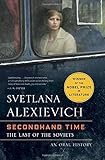
 A footnote alerted me to the existence of Douglas Porpora’s How Holocausts Happens: The United States in Central America, which I will be rerereading for years. Porpora demonstrates how easy it is for citizens to shirk responsibility for horrendous acts enacted by their government and asks whether the United States became a party to a genocide-like event in Central America (the answer is yes).
A footnote alerted me to the existence of Douglas Porpora’s How Holocausts Happens: The United States in Central America, which I will be rerereading for years. Porpora demonstrates how easy it is for citizens to shirk responsibility for horrendous acts enacted by their government and asks whether the United States became a party to a genocide-like event in Central America (the answer is yes).
Everything that is happening to us in Central America, Óscar Martínez writes in A History of Violence: Living and Dying in Central America, is tangled up with the United States. In this collection, Martinez, a journalist whose acerbic prose enlivens its dire subjects, covers stories that illuminate why so many Central Americans are willing to risk their lives to cross the border to the United States (and why, instead of calling them illegal or undocumented, we should be calling them refugees).

 I’ve been reading Tony Tulathimutte and Karan Mahajan for years, and like any decent fan, I’ve been waiting for the so-called general public to catch on. Tony’s a prose stylist who, because he does not have (to paraphrase from a Latin American saying) hairs on his tongue, gleefully pierces through the varieties of American hypocrisy, as he does in Private Citizens, his first novel, although he isn’t after satire, but after character, which of course could be described as a summation of hypocrisies.
I’ve been reading Tony Tulathimutte and Karan Mahajan for years, and like any decent fan, I’ve been waiting for the so-called general public to catch on. Tony’s a prose stylist who, because he does not have (to paraphrase from a Latin American saying) hairs on his tongue, gleefully pierces through the varieties of American hypocrisy, as he does in Private Citizens, his first novel, although he isn’t after satire, but after character, which of course could be described as a summation of hypocrisies.
When I think of Karan I think of Saul Bellow, and when I think of Karan’s The Association of Small Bombs I think of the richness of his moment by moment narration, as in, for instance, the sequence of disorientation of Mansoor, who, after surviving a detonation, flees the bomb scene (his friends were dead in any case), runs away from someone who offers to help (what if he’s a kidnapper!), and chides himself for not asking a woman for help instead (safer).

 In Seeing Red, Lina Meruane’s propulsive prose doesn’t just pursue her rage against the onset of her blindness, but its undercurrents as well. I’m being devoured by a delicate, carnivorous flower, she says. I’ve come to tell you that I need you, she says, and I don’t want to need you ever again.
In Seeing Red, Lina Meruane’s propulsive prose doesn’t just pursue her rage against the onset of her blindness, but its undercurrents as well. I’m being devoured by a delicate, carnivorous flower, she says. I’ve come to tell you that I need you, she says, and I don’t want to need you ever again.
A Nobel Prize winner doesn’t need my shoutout, but Svetlana Alexievich’s Secondhand Time, an oral history of Russia after the end of communism, which contains sections that resemble the ensemble of voices in JR by William Gaddis, is so extraordinary that it made me want to spend the next 10 years recording monologues by my fellow Americans.

 Another master of other people’s monologues is Rachel Cusk. In Outline and Transit, the first two novels of her trilogy, a narrator who has been astonished into silence by the loss that comes with adult relationships explores the confounding landscape of being alone/not alone through the monologues of acquaintances, former lovers, people in planes, students. One day literature professors will map out the intricate interconnectedness of her monologues.
Another master of other people’s monologues is Rachel Cusk. In Outline and Transit, the first two novels of her trilogy, a narrator who has been astonished into silence by the loss that comes with adult relationships explores the confounding landscape of being alone/not alone through the monologues of acquaintances, former lovers, people in planes, students. One day literature professors will map out the intricate interconnectedness of her monologues.
I’ll conclude my incomplete 2016 list (where’s The Last Wolf by László Krasznahorkai? I’ll Sell You a Dog by Juan Pablo Villalobos?) with a random passage from Transit: “I had started to desire power, because what I now realized was that other people had it all along, and that what I called fate was merely the reverberation of their will.”
More from A Year in Reading 2016
Don’t miss: A Year in Reading 2015, 2014, 2013, 2012, 2011, 2010, 2009, 2008, 2007, 2006, 2005









